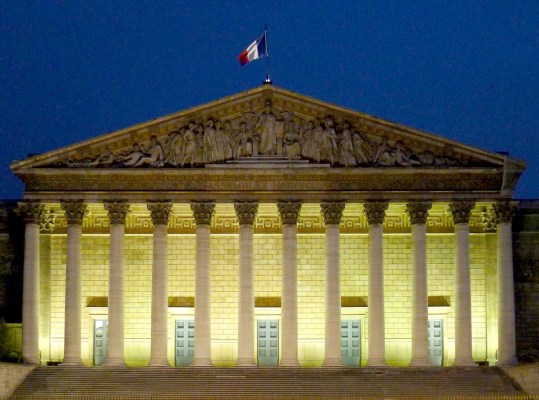Following Charlie Hebdo’s attacks, the French Government has been tirelessly working to draft and vote a new intelligence law that goes way too far. Today, the lower house of the French Parliament overwhelmingly voted for this new law, making it highly likely to be definitely implemented in a couple of months. In many ways, this law is even broader than the Patriot Act, and many media outlets, non-governmental organizations and vocal opponents lobbied against it. And yet, 77 percent of the members of the Assemblée Nationale just approved this law.
One of the most controversial part of this law is the so-called black boxes. French Internet service providers and hosting companies will have to install a new system in their infrastructure to filter all traffic. An algorithm will detect suspicious activity, like if someone is watching videos related to terrorism, and then record everything you do online.
The only problem is that nobody will see this algorithm source code and know what’s happening, except a new institution in charge of the technical control of intelligence systems. You guessed it, this institution will be nominated by the ARCEP, the French equivalent of the FCC. So the new institution’s first goal won’t be to protect your privacy, but to get tangible results for the Government and French intelligence agencies.
In order to campaign for this law, the Government has been saying that intelligence agencies were already spying on everyone, and this new law is a more honest for everyone. This might be true, but is certainly the worst argument to defend this law.
And to be fair, intelligence laws are all about finding the perfect balance between security and privacy. But today’s law doesn’t really take privacy into account.
In addition to the black boxes, there will be a new database of dangerous persons, new devices to record phone calls, FISA-like metadata collection and more. The CNIL, Amnesty International, the group of parliament members specialized in digital topics, the main French hosting companies OVH, Gandi and Online.net, journalist unions, and even the French association of terrorism victims are all against it.
But 438 out of 566 members of the lower house from all parties voted for the law. Surprisingly, it was an overwhelmingly positive vote. The Sénat will then vote the law as well. Given the lack of opposition for the first vote, the rest should be a piece of cake. The Constitutional Council is the only hope as it could reject part of the law. But I wouldn’t bet on it.
R.I.P. good times.
